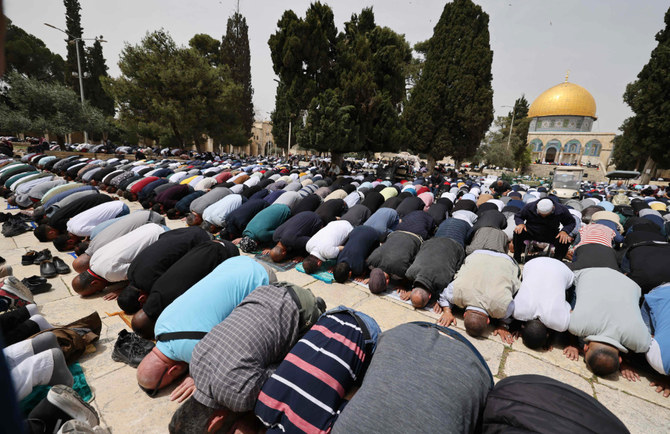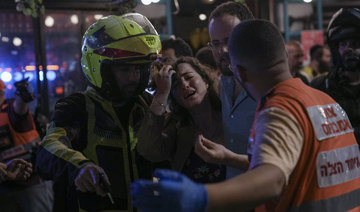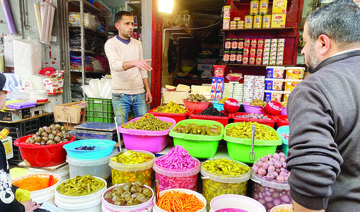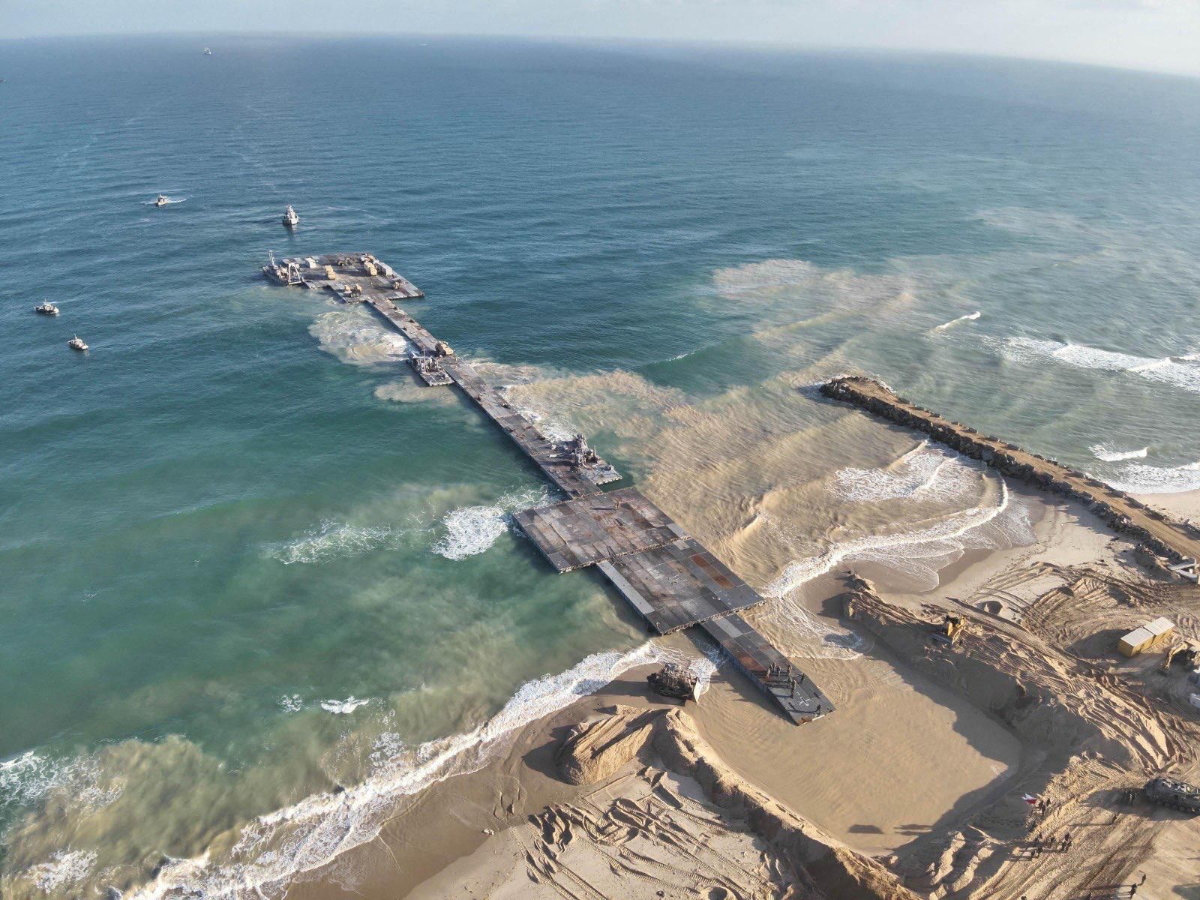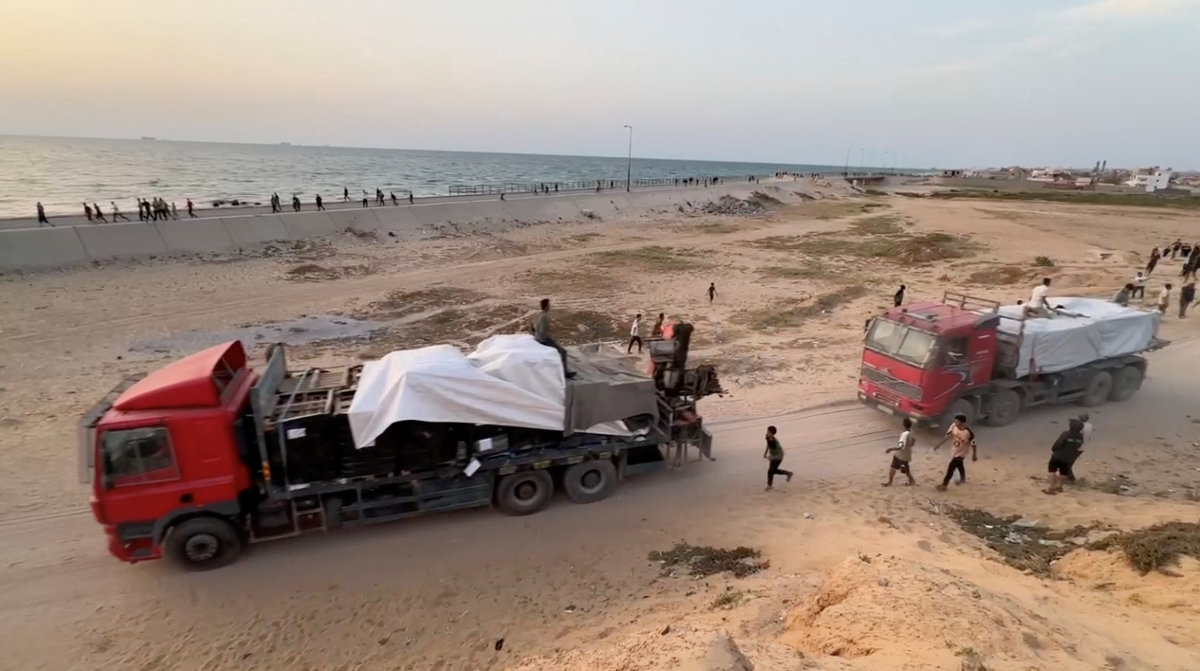RAMALLAH: About 50,000 Palestinians peacefully performed the first Friday prayer of Ramadan at Al-Aqsa Mosque amid tightened Israeli security procedures in the wake of Thursday’s Tel Aviv violence that left two Israelis killed.
Four of the 15 people injured in the attack are in a serious condition, according to Israeli medical sources.
Thousands of Israeli citizens and Palestinians from the West Bank flocked to the mosque early in the morning after passing through Israeli military checkpoints at the entrances to Jerusalem.
About 3,000 Israeli policemen were deployed throughout East Jerusalem, the Old City and at the gates leading to the mosque. There was no untoward incident.
Ikrima Sabri, the imam at Al-Aqsa, praised the worshipers who came to the mosque from far away places facing Israeli checkpoints and urged Muslims to pray at Al-Aqsa regularly, with special emphasis on the nightly taraweeh prayer.
HIGHLIGHT
President Abbas said the cycle of violence confirms that ‘permanent, comprehensive and just peace is the shortest and correct way to provide security and stability for the Palestinians, Israelis and people of the region.’
Ibrahim Al-Anbawi, 53, from the Anata refugee camp near Jerusalem, told Arab News that the prayer took place “quietly and without tension.” There were fewer worshippers because of Thursday’s Tel Aviv attack and fears of consequences, he added.
Al-Anbawi, who offers Friday prayers at Al-Aqsa every week, said the sermon was confined to religiosity, without any reference to the current political situation to avoid stirring up feelings.
Meanwhile, the Tel Aviv shooting attack in which a Palestinian gunman shot dead two people at a bar continues to cast a shadow over life in both the West Bank and Israel.
Palestinian President Mahmoud Abbas condemned the attack and stressed the dangers of “continuing the repeated incursions into Al-Aqsa Mosque and the provocative actions of extremist settler groups.”
However, the attack was praised by several Palestinian factions and much of the public.
The officers found the shooter hiding near a mosque in Jaffa, just south of Tel Aviv, Israel’s Shin Bet security agency said. During an exchange of fire, the attacker was killed, the agency added.
A son of a retired Palestinian security officer, attacker Ra’ad Hazem, 29, was from the Jenin refugee camp in the north of the West Bank.
A high-ranking Palestinian security officer, who preferred anonymity because he is not authorized to talk to the media, told Arab News that the recent attacks in Israel constituted a “pivotal shift,” with attackers switching from knives to guns, “which causes more victims and spreads a state of terror in the Israeli street.”
He said these attacks “reflect the state of anger in the hearts of the Palestinians against the continued Israeli oppression and the absence of any political or economic horizon.”
Palestinian factions said the Tel Aviv attack represented a natural response to the “crimes of the Israeli occupation and the continuation of its violations in occupied Jerusalem and Al-Aqsa Mosque.”
Thirteen Israelis have been killed, and more than 20 others wounded in four attacks carried out by Palestinians in less than a month.
The Israeli Channel 12 said the demand for psychological help in the country has increased tenfold over the past two weeks after the Beersheba and Tel Aviv strikes.
Condemning the attack, Israeli Premier Naftali Bennett said: “Our war on deadly terrorism is long and difficult, but we will win it.”
Israeli Foreign Minister Yair Lapid said: “We will fight terrorism together, strike the resistance fighters wherever they hide, find their senders and collaborators anywhere, and not rest until calm returns to the streets.”
In contrast, Israeli Defense Minister Benny Gantz said: “We will expand our operations against the wave of attacks. The price we will exact from the perpetrators of the attacks and their senders will be heavy.”
Gantz said that Israel arrested 200 Palestinians, and “if necessary, we will arrest thousands more.”
Abbas said the killing of Palestinian and Israeli civilians “only leads to a further deterioration of the situation, as we all strive to achieve stability, especially during the holy month of Ramadan, and the upcoming Christian and Jewish holidays.”
Abbas warned against “exploiting this condemned incident to carry out attacks against our Palestinian people.”
He stressed “the danger of the continued and repeated incursions into Al-Aqsa and the provocative actions of extremist settler groups everywhere.”
He said the cycle of violence confirms that “permanent, comprehensive and just peace is the shortest and correct way to provide security and stability for the Palestinians, Israelis and people of the region.”
Gantz praised Abbas’s condemnation of the attack.




